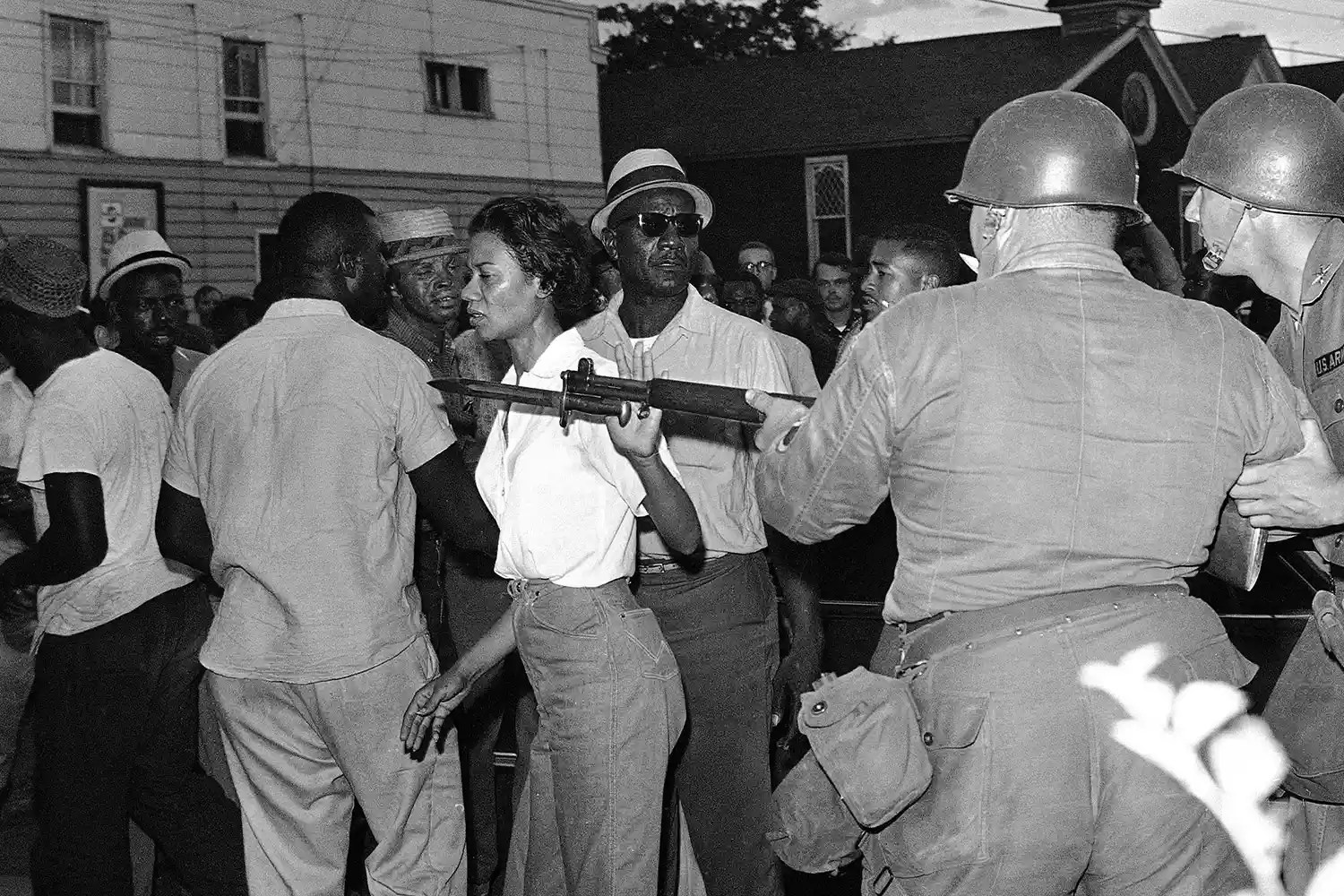Gloria Richardson.Photo: William Smith/AP/Shutterstock

The activist died in her sleep at her New York City home on Thursday, her granddaughter Tya Young told theAssociated Press.
A cause of death was not given, though Young noted to the outlet that Richardson had not been ill.
A graduate of Howard University, Richardson is known for her unrelenting determination in the fight for racial equality, having once been captured in a photograph pushing away the rifle of a National Guardsman during the civil rights movement in Cambridge, Maryland, in the ’60s.
In 1962, after joining the Cambridge Nonviolent Action Committee, she organized sit-ins in efforts to desegregate schools and public facilities, as well as push for fair jobs, public housing, and equal education.
By 1963, the peaceful sit-ins turned violent and resulted in Cambridge Governor J. Millard Tawes declaring martial law. At the time, Cambridge Mayor Calvin Mowbray asked Richardson to end demonstrations in exchange of a promise not to arrest Black protestors, but she declined to compromise.
“I didn’t believe in non-violence if people were coming shooting into your houses,” Richardsonsaidin a 2018 profile withTopic. “It was just people whose lives were at stake and in danger and it was a life and death situation almost every day.”
The National Guard was called into Cambridge on June 11, 1963. While the city was seeing unrest, Richardson met with U.S. Attorney General Robert F. Kennedy to negotiate what is now known as the “Treaty of Cambridge.”
Gloria Richardson.AP/Shutterstock

Of Richardson’s significant efforts in the civil rights movement, her granddaughter told the Associated Press, “She did it because it needed to be done, and she was born a leader.”
Gloria Richardson.Michael Noble, Jr./getty

Never miss a story — sign up forPEOPLE’s free weekly newsletterto get the biggest news of the week delivered to your inbox every Friday.
Even in her later years, Richardson continued to push for racial equality.
AfterGeorge Floyd’s death in 2020, she called on young protestors to be fierce.
“Racism is ingrained in this country. This goes on and on,” she toldThe Washington Postlast year. “We marched until the governor called martial law. That’s when you get their attention. Otherwise, you’re going to keep protesting the same things another 100 years from now.”
source: people.com